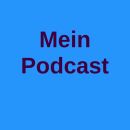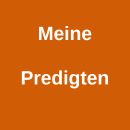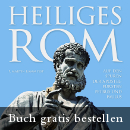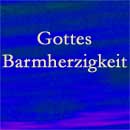zur katholischen Geisteswelt
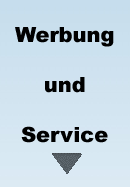
|
Zum
Inhalts- verzeichnis |
|
Zum
biographischen Bereich |
dient der theologischen Aufklärung
und bietet Ihnen Beiträge zu Themen der katholischen Welt.
Die Beiträge unterliegen in der Regel dem Urheberrecht.
Zum Autorenverzeichnis
Sie befinden sich im englisch- und polnischsprachigen BereichDie neuesten Beiträge finden Sie jeweils auf der Startseite
|
Zum philosophischen Bereich
|
|
Zum
liturgischen Bereich |
Englisch
Abuse
Conscience
Epidemic
Facets of Love
Faithfulness
FSSP
Illusion?
Jesus Christ
Kant: Purpose
Language of L.
Love
Love & Illusion
Love as Source
Mature Christian
Mercy Defiled
Morality
Priest
Rescuing Reason
Walker
Kroatisch
By P. Engelbert Recktenwald
“This is My Body.” There have perhaps never before been any words spoken into which so much love has been placed as into these words: spoken by our Lord at that Supper, when, having loved His own, He loved them to the end (Jn 13:1).
“This is My Body”: This inconspicuous little piece of bread, this host, which you see before you, is my body. This is the extent to which my love for you drives me, that I enter for your sakes into the utmost form of humiliation and vulnerability. I relinquish the outward appearance of my humanity and present myself to you as food under the form of bread. The folly of love.
“This is My Body”: This small white disc does not merely signify my body. It is not merely a symbol. It is my body. My body is present: truly, actually and substantially. For I do not only love you symbolically, but actually. I do not only love you with words, but in deed. The reality of love.
“This is My Body”, the body of your God. For it is I, the Logos, God of God, Light of Light, true God of true God, who took on this body, in order to become one of you. I wished for you to recognize therein my love and to find the courage to love me likewise. So that you would not be dismayed by my greatness, I became small, a human, a child, full of grace and benevolence. So that you would come to trust me, laying aside all fear and approaching me in love. The beauty of love.
“This is My Body”: I am Spirit and dwell in unapproachable light. By taking on a body, I became visible, touchable, vulnerable. I became approachable, exposing myself to your grasp, your abuse, your hatred. On the cross and on the altars. My love accepts this. My love pays no heed to this. My love takes this upon itself for the sake of those who understand the language of love, and respond, not with ridicule but with requited love. Audacity of love. – Love to the end.
The Eucharist is the masterpiece of love. We shall never understand the love of our God if we do not understand the Holy Eucharist. And we will never achieve a proper attitude towards the Most Holy Sacrament of the Altar, if we do not recognize it to be the miracle conceived by almighty Love. We can never humble ourselves to the extent to which God condescended in self-forgotten love in the Eucharist. It is not even possible to exaggerate here: We will never approach this measure of divine kenosis, divine self-renunciation. Every liturgical innovation must be judged according to whether it leads us more deeply into this proper attitude toward the Eucharist. The Lord knows but one measure: Love. Every reform ought to admit ultimately but one measure: Love. Has, for instance, the love for the Eucharist in souls increased through the introduction of Communion in the hand? Everything else is of no interest.
“This is My Body”: Here we hear the voice of our Shepherd. God is Love. It is the voice of Love. “…and they will heed my voice”, Christ says of His sheep, which he will bring into the fold (Jn 10:16). What comfort lies in this voice! It is the voice of our Shepherd, who has laid down His life for the sheep. And we hear His voice again and again: “This is My Body.” Over and over again we can hear these words of love. And that is how we recognize HIM. “I am the good shepherd; I know my own and my own know me” (Jn 10:14). O the bliss of being permitted to belong to His sheep! That is the all-deciding factor. It is not to be taken for granted. For many are called, but only few are chosen. May we then really count ourselves among His sheep? This is the question before which we tremble! Everything depends upon it. Who could dare to answer it! The Lord himself has answered it: He who recognizes HIM by His voice, it is he who belongs to his sheepfold.
Do we belong to His sheep? To ask this question is to ask: Do we know the language of love?
Polnisch
Dobro i złoFatamorgana
Miłość
Miłość Boża
Moralność
Tolerancji
Portugiesisch
Amor como chave
Amor como fonte
Facetas do Amor
Ilusão?
